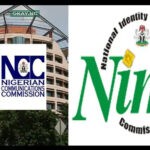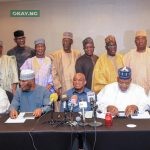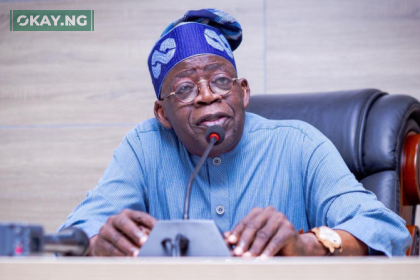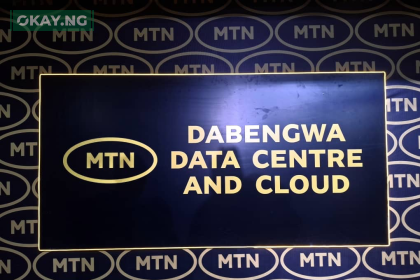Militants under the aegis of Bakassi Strike Force (BSF) have reportedly set up a parallel administration in Bakassi and Akpabuyo Local Government Areas (LGAs) of Cross River State.
For the past two years, civil and traditional authorities have been displaced by the militants, who many believe are also responsible for cases of kidnapping, armed robbery and other crimes in the area, and in Calabar, the state capital.
The state governor, Ben Ayade, however, has promised to flush them out. Confirming the development during a chat with reporters on Friday, he said: “We are coming after them. We know all the militants who are now parading and taking full occupation of Bakassi. We would free the people of Bakassi. The three kingpins, I know. We have identified their homes. We have a clear picture of their modus operandi and we are working on a massive attack. I speak as the United States does. They let you know that they are coming for you and they come after you.”
Elected officials and civil servants, for fear of being kidnapped or attacked by the militants, have long deserted the secretariats of both local councils, even as state judicial organs and traditional institutions have been rendered impotent in the two councils.
Meanwhile, as bombings of the nation’s key assets by the militant group, Niger Delta Avengers (NDA), takes on a most frightening dimension, the Ijaw Youth Congress (IYC) says the solution to crisis in the region is for government to address the question of resource ownership and control, in such a way that local communities would have equity stakes in resources produced in their environment.
On Friday, militants in Bayelsa State destroyed pipelines belonging to the Nigerian Agip Oil Company. The attack follows the bombing of major oil installations in Delta and Rivers State by the NDA, which has since refused to dialogue with the Federal Government.
The IYC argued: “Some people call it resource control. But whether it would be 100 percent or otherwise is open for discussion. This is the permanent solution to the problem. Any other problem is a palliative that cannot stand the test of time, as we experienced with the amnesty programme.”
In an interview, Niger Delta youth leader and spokesman of the Ijaw Youth Congress, worldwide, Barrister Eric Omare, said while resource control is a long-term solution, a short-term approach to the crisis is for the Federal Government to “sincerely engage the people of the region and address some of the short term demands such as the Maritime University in Okerenkoko, restructuring of the amnesty programme, NDDC, review of the Ministry of Niger Delta Affairs’ budgets, relocation of oil companies headquarters to the Niger Delta and reinvigoration of the Niger Delta economy, to address livelihood issues through diversification by making the sea ports in the region functional etc.”
According to Omare, “These and other issues, to a large extent, would ensure that youths of the region are engaged in the short term, while government embarks on a sincere restructuring of Nigeria, to address the long term issues.”
Bakassi and Akpabuyo council chairmen, Mrs. Edisua Usang Iso and Dr. Patrick Ene Okon, and their councilors, now operate from Calabar.
One community leader, who pleaded anonymity, said: “What is happening in the two councils is anarchy. These boys have taken over everywhere. I don’t blame them; I blame the insensitive government we have. The big politicians and government officials patronise them, so I am not surprised at what is going on.
“The militants have prevented the authorities of both LGAs from generating internal revenue from residents and other persons doing any form of business in their residences, shops and local markets. We now pay rents and levies to them, which they call ‘protection money’.”
Another source in Bakassi said: “There is total anarchy. People are actually running to Cameroun for help. First of all, the local government chairmen don’t go to their offices. They have not done so over the last one and a half years. They have written, complained, begged, and appealed to no avail.
“The legislatures in those places don’t meet at the local government headquarters. They hold their meetings in Calabar. So, effectively, there is no governance in those areas. The traditional institutions have tried to fight, but they can no longer sustain action. They don’t have guns; they don’t have money.
“The militants have set up a parallel government. They are the ones that resolve land disputes. They are the ones that resolve family disputes. If husbands and their wives quarrel, they go to the militants. They rely on jungle justice. They whip people. Culprits pay fines of goats, drinks and money.”
Ironically, there are police posts and members of the Nigerian military stationed in the areas. They, however, do nothing, as there seems to be a “working understanding between them and the militants.”
On June 9, the BSF, at Esuk Mba Beach in Akpabuyo council, embarked on a show of strength, calling on the Federal Government to consider them in its amnesty programme.
Brandishing sophisticated weapons, and clad in camouflage, white singlet and masks, they, however, declared solidarity with the President Muhammadu Buhari-led Federal Government, saying a roundtable negotiation is the way forward, not violence.“We are calling on Mr. President to look our way by extending an olive branch to us by way of amnesty, and also rehabilitate our people and our land by ensuring proper resettlement of the Bakassi people. We are ready to work with the Federal Government,” the group said in a statement.
BSF leader, General Simply Benjamin, said: “You will agree with me that Akwa Ibom and Cross River States are part of the Niger Delta, yet we have been completely sidelined from the amnesty scheme and other empowerment programmes aimed at youths of the Niger Delta. The Federal Government took away our oil-rich Bakassi from us and handed it to Cameroun. We, as inhabitants, were neither consulted; neither was proper compensation and resettlement instituted.”
The chairman of Akpabuyo council, Dr. Okon, declined to comment on the issue. His Bakassi counterpart, Mrs. Iso, admitted that militants were operating in her area of jurisdiction, but stressed that their actions have not affected running of the administration, even though “the council has lost substantial revenue due to their activities. What the Federal Government should do is grant amnesty to the militants and incorporate them into the amnesty programme for Niger Delta militants.”
She also denied abandoning the council secretariat for close to two years, saying she and other officials have been going to Bakassi whenever it was necessary.Cross River State Commissioner of Police, Jimoh Ozi-Obeh, could not be reached for comments.
The Police Public Relations Officer, Irene Ugbo, however, said the police have always been working hard to make sure the state is safe.She said she is not aware of any parallel government in the LGAs, adding: “What I will tell you is that the police is putting in their best to make sure the state is safe. The Commissioner deployed some policemen to the area and I think it is calm for now. Anything happening, the police must be involved, trying to calm the situation, otherwise things would have been worse. So, you can rest assured that the police is working to bring this crisis too an end.”











